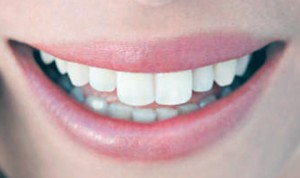 Last month we discussed the connection between heart and gum disease, but that’s not the only condition your dentist can spot; in fact, the health of your mouth can shine a light on other potential health threats that otherwise may not be visible. Patients may not experience any symptoms, but since the mouth is a mirror to the rest of the body, current health problems can be exposed by having a simple dental examination. The link between gum and heart disease is clear, but here are four other health conditions that can be uncovered by your mouth:
Last month we discussed the connection between heart and gum disease, but that’s not the only condition your dentist can spot; in fact, the health of your mouth can shine a light on other potential health threats that otherwise may not be visible. Patients may not experience any symptoms, but since the mouth is a mirror to the rest of the body, current health problems can be exposed by having a simple dental examination. The link between gum and heart disease is clear, but here are four other health conditions that can be uncovered by your mouth:
Diabetes
Periodontitis (gum disease) is not only an indicator of heart disease, but can be an indicator of diabetes as well. In fact, a Chinese study last year revealed that nearly two-thirds of dentists said they would refer a patient with gum disease to go for a diabetes evaluation. Even if a diabetic has a clean mouth, they can still have a periodontal problem since individuals with uncontrolled diabetes are more prone to dental problems due to blood-sugar levels. In order to keep your health in check, keep an eye out for these two symptoms; suffering from multiple abscesses on the gums, and breath that smells like sour fruit; as these are the two biggest oral signs of diabetes.
Acid Reflux Disease (GERD)
Even though you often feel the burn in your chest when acid reflux hits, the effects are most obvious in your mouth. When the stomach acid rises up into the mouth, it can wear away the enamel on the teeth; in addition it also can cause the individual to have a persistent sour taste in their mouth. In a 2008 study published in the Alimentary Pharmacology & Therapeutics researchers discovered that a third of adults that had dental erosion were also suffering from GERD (gastrointestinal esophageal reflux disease). In fact, some of these individuals didn’t realize they had a problem with acid reflux until it was pointed out by a dentist.
Dementia
A Japanese Psychosomatic Medicine study in 2012 discovered that older adults that had poor dental hygiene were 76 percent more likely to develop dementia. While recent British research has backed up the research by finding that a lack of teeth is associated with mental decline. The link between oral health and dementia is not quite clear at this time, as this is a relatively new area of research. What is known is that Porphyromonas gingivalis, a bacterium associated with gum disease was found in the brains of people with dementia. This bacterium could very well play a role in the inflammation that is often associated with mental decline.
Osteoporosis
Osteoporosis may not cause the teeth to decay, but a dentist may be able to spot bone loss not in your teeth, but in the surrounding structures when investigating a patient’s mouth x-ray. A 2013 study in the Journal of Research in Medical Sciences revealed the correlation between the bone density of the spine and the thickness of postmenopausal women’s jawbones. This will help further the advancement of early detection, since the diagnosis of osteoporosis often goes undetected until a major injury occurs.
This is excellent news for the future of preventative care! Many of these conditions are very common, but they are often under-diagnosed, so make sure you add a dentist to your team of health detectives!
